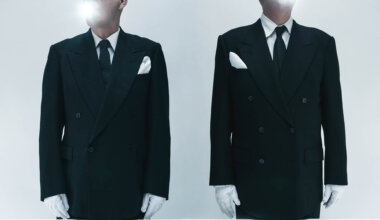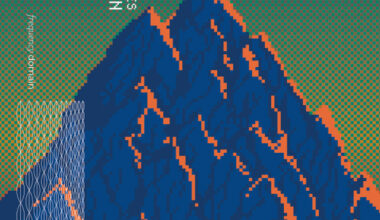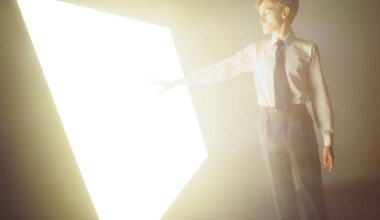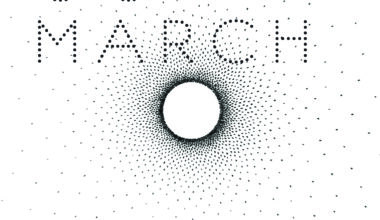Frank’s Wild Years

‘The Best Of Fad Gadget’ was originally released in 2001 to celebrate Frank Tovey bringing his Fad Gadget alias out of retirement for a support slot with Depeche Mode. It was a moment of electronic music history repeating itself, albeit in reverse and on a stadium-sized scale: Depeche Mode had supported Fad Gadget in 1980, back when they were all callow young chaps, Frank Tovey having been the first artist to join Daniel Miller’s nascent Mute Records.
Twelve months after the compilation was issued, Tovey was dead from a heart attack. It’s hard not to listen to these tracks, hand-picked as they were by Tovey himself, without mourning the fact that he left behind such a brief legacy – four Gadget albums, a clutch of singles, and a challenging performance art repertoire that was already honed back in the days when he was fighting over studio space at Leeds Polytechnic with fellow students Marc Almond and Dave Ball.
Mute’s pressing of the album on vinyl for the first time coincides with the 40th anniversary of ‘Back To Nature’, Fad Gadget’s first single, and a teaser for an expansive boxset. Recorded with Daniel Miller, ‘Back To Nature’ gave a nod to the Ballardian tropes of Miller’s own ‘Warm Leatherette’ statement, but it also highlighted Tovey’s wry humour. While the gloomy industrial electronics sounded like it was pointing to a post-apocalyptic world of extreme temperatures, it was in fact Tovey ruminating on sun-loving folk enjoying the beach at Canvey Island.
Over on the B-side of ‘Back To Nature’, ‘The Box’ was even more subversive, its desperate lyrics reading like the stage directions for a macabre one-man show with the performer stuck in a tightly enclosed space. After the dry ‘Ricky’s Hand’ single, though, a sinister counterpart to Depeche’s similar-sounding ‘Photographic’, Tovey gently removed Miller’s producer hat and began to forge his own path with his 1980 debut album, ‘Fireside Favourites’. The record dealt with everything from cosy nights around the hearth during a nuclear meltdown to bedroom frustration, each track a symbiosis of Tovey’s synths and whatever potential sound-making objects were lying around the studio at the time.
Through his ensuing albums – ‘Incontinent’ (1981), ‘Under The Flag’ (1982) and ‘Gag’ (1984) – Tovey developed his songwriting craft, initially by getting to grips with kit like the MC-4 sequencer and then by developing a full-band aesthetic at precisely the same time most artists were dispensing with traditional instruments in favour of keyboards and drum machines. But even as his music matured, anticipating the series of folk and rock-inflected albums issued under his own name with the band The Pyros, he was still stripping off his clothes on stage and covering himself in tar and feathers, still spraying shaving foam all over his body, memorable images that Anton Corbijn captured for the harrowing covers of both ‘Gag’ and this compilation.
Tovey’s songs never once lost that slightly disturbing potency that made his earliest singles so insistent. Of some of the many highlights here, ‘Lady Shave’ turns a song about the quotidian act of removing hair into a seedy, voyeuristic, perverted show. ‘Saturday Night Special’ tackles the subject of guns and the right to bear arms. The sleek electronic shapes of ‘Love Parasite’ details a sexual predator. ‘Life On The Line’ and ‘For Whom The Bells Toll’ are dour pop songs that betrayed Tovey’s paranoia at becoming a father for the first time.
‘Collapsing New People’ takes industrial percussion and the looped mechanical sound of a printing press to offer a vivid anthropological assessment of the dispossessed, wasted, vampiric youths he observed while recording in Berlin. There’s also the left-field proto-electro ‘4M’ and its gurgling and howling baby sounds, which could have been designed to score the end of the world, but was actually a tender piece based around the sampled voice of his baby daughter.
There are those who view Frank’s wild Fad Gadget years as a kind of a novelty cabaret schtick, a product of an anything-goes post-punk vibe, his role in the development of early 80s electronic music somehow less than the likes of Cabaret Voltaire, The Human League and Soft Cell. But observed in hindsight, no other musician managed to fuse art school theatrics and dystopian social commentary within the emerging constructs of electronic technology as fluidly and as seamlessly as Frank Tovey. What’s more, the likelihood of an artist like Fad Gadget emerging in these supposedly super-liberal times is unimaginable. We’re all trapped inside the metaphorical cage of ‘The Box’ and no one dares – like he did – to try and break out.





